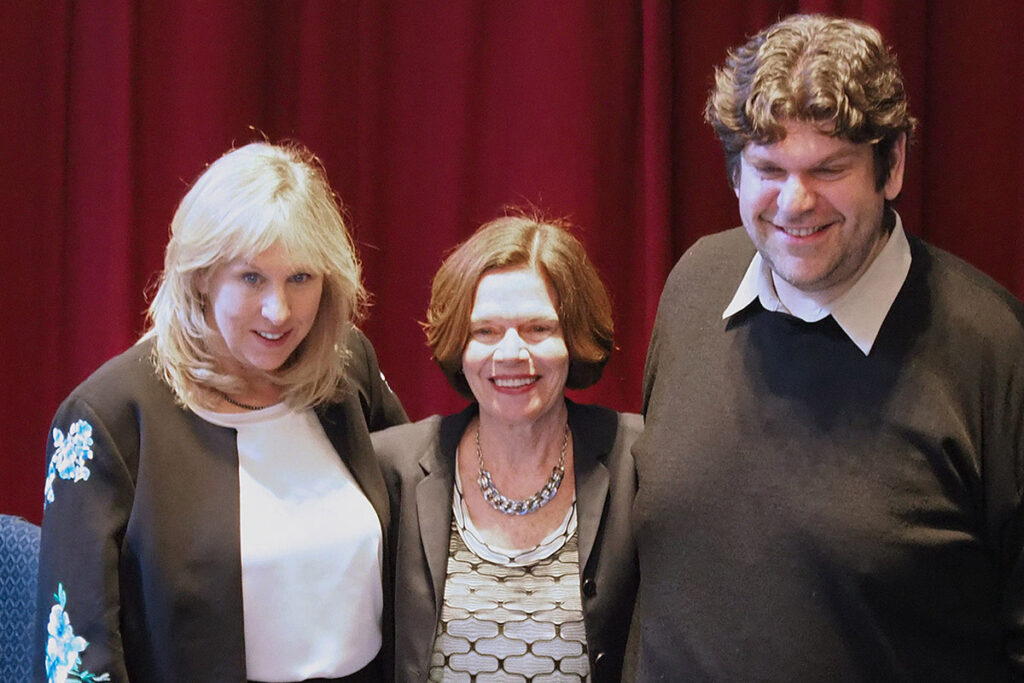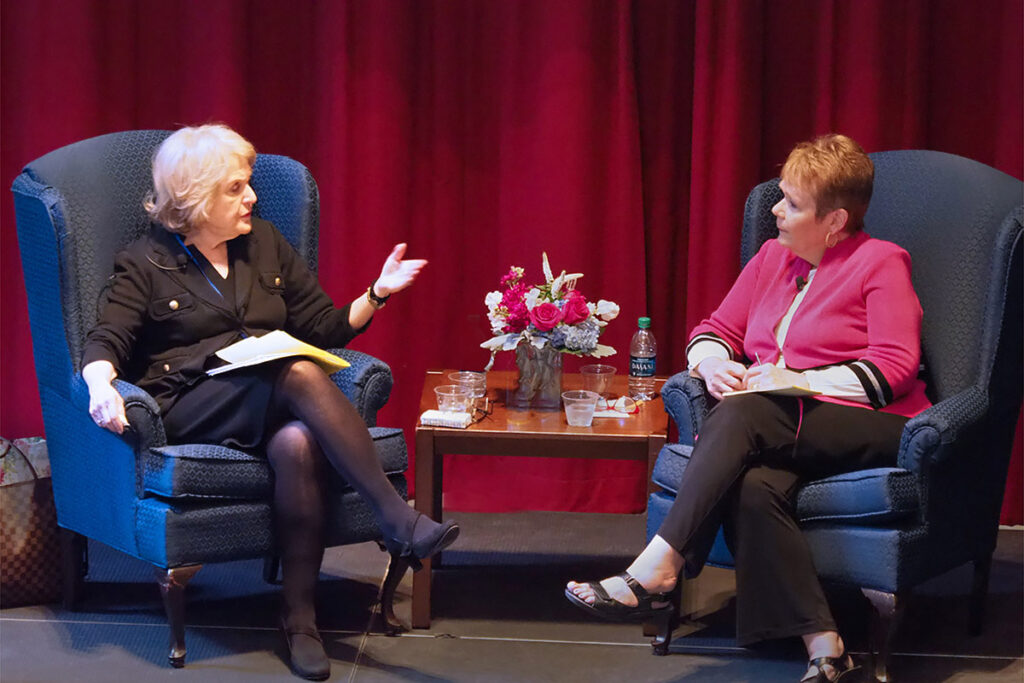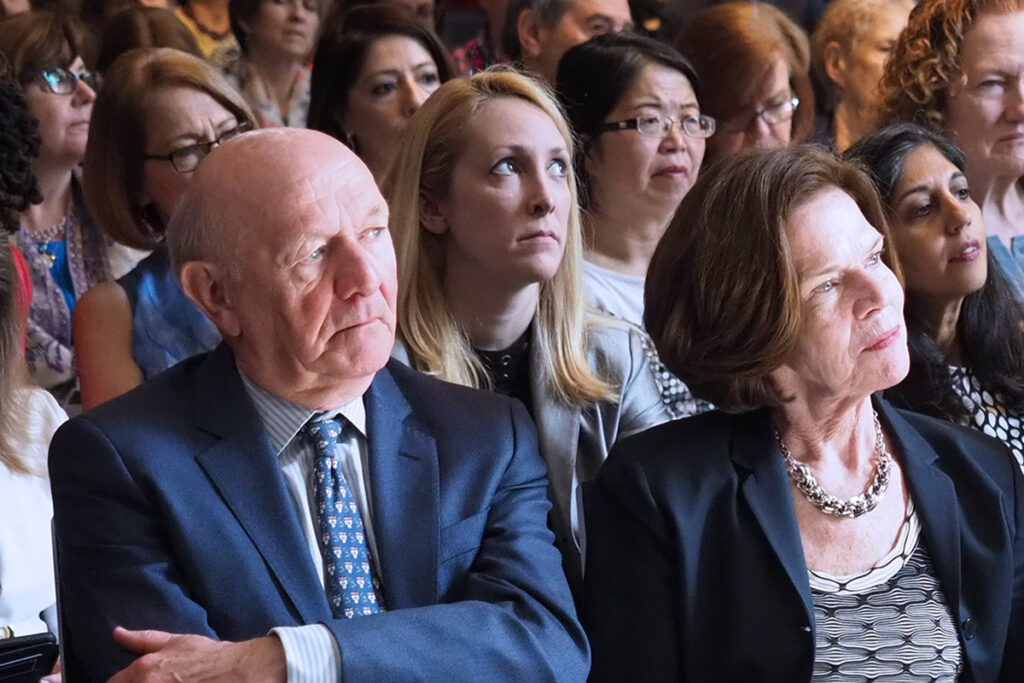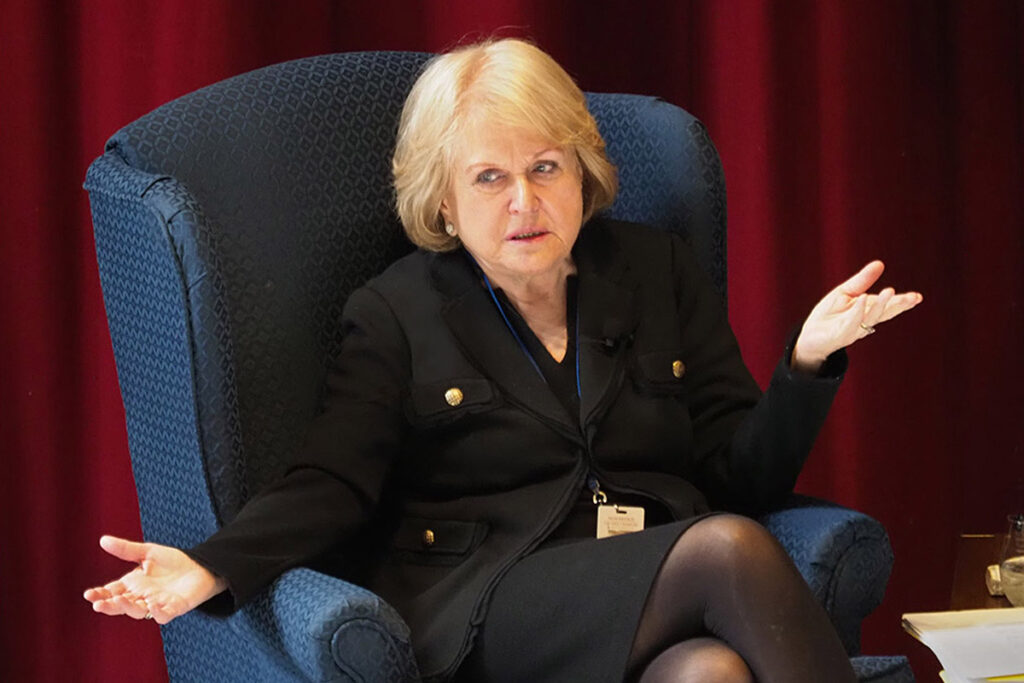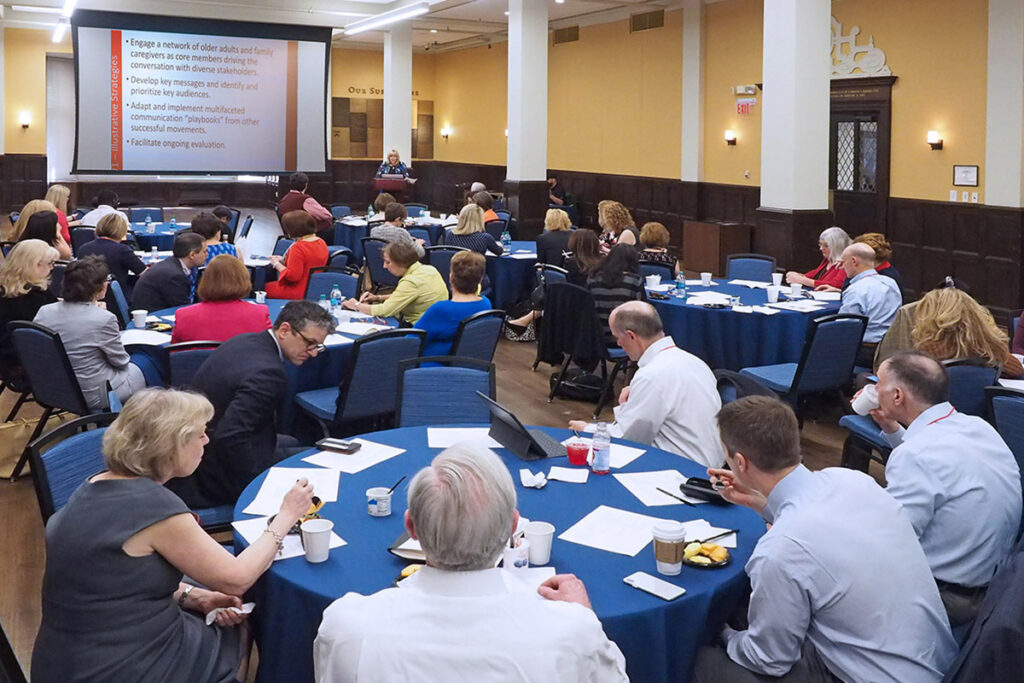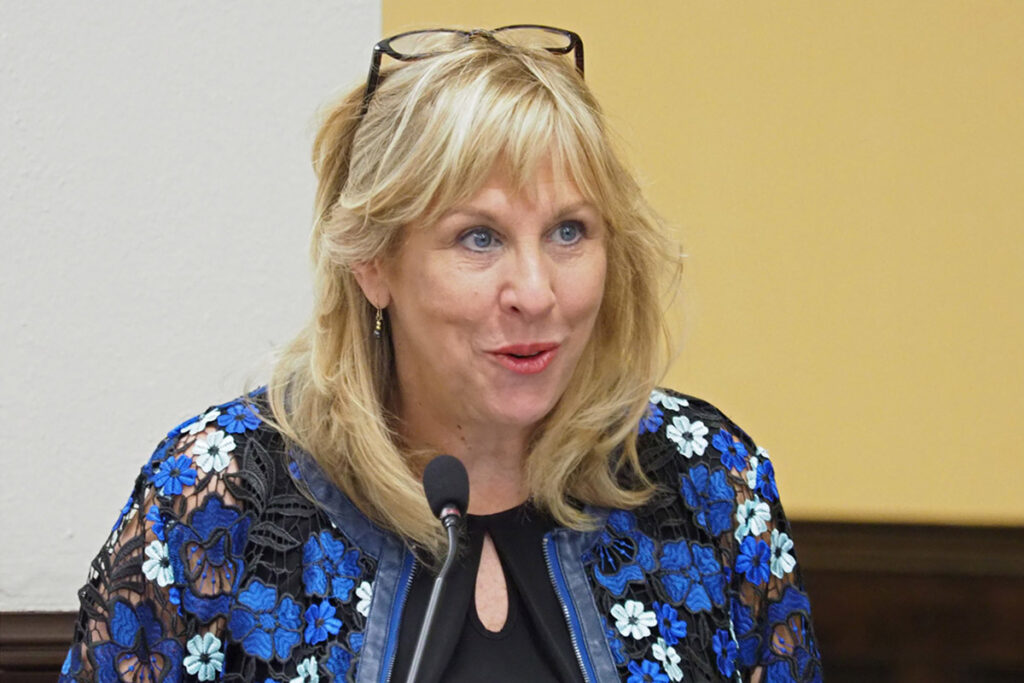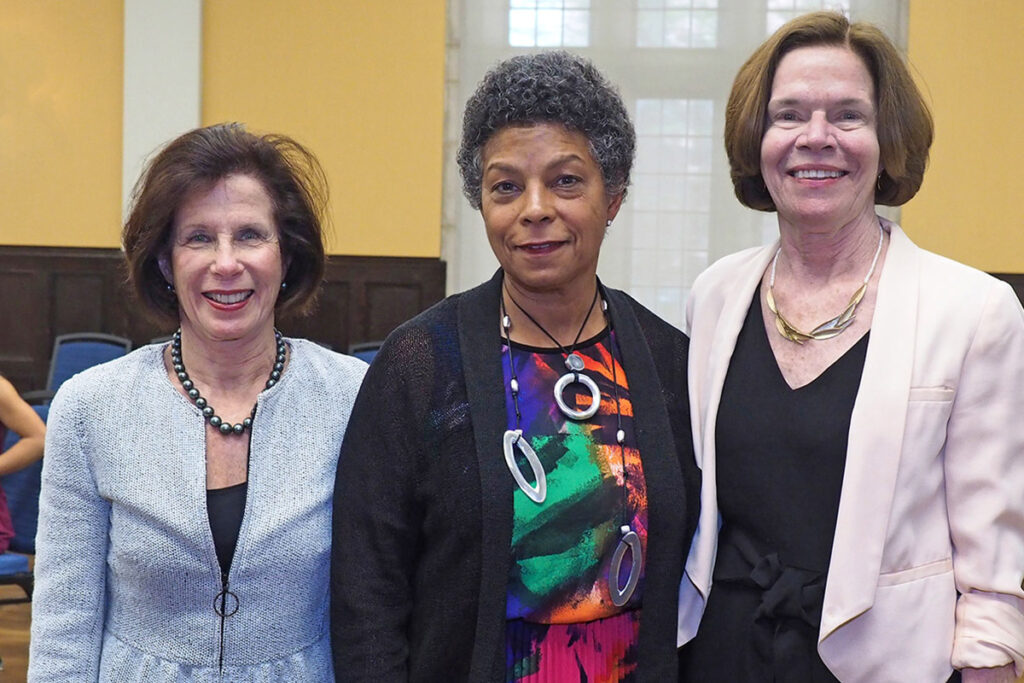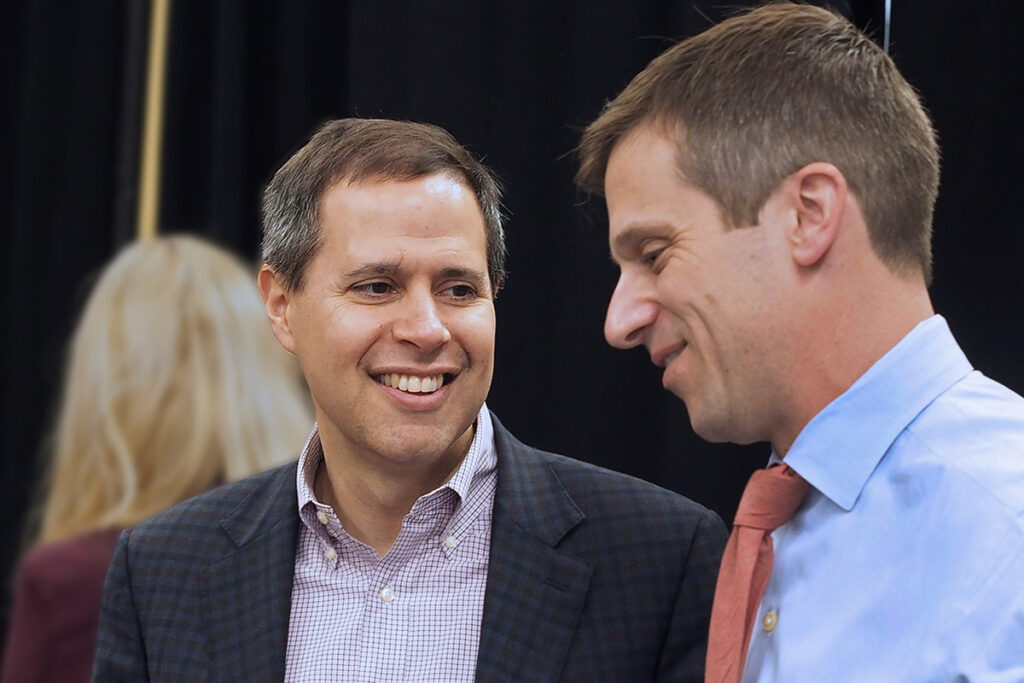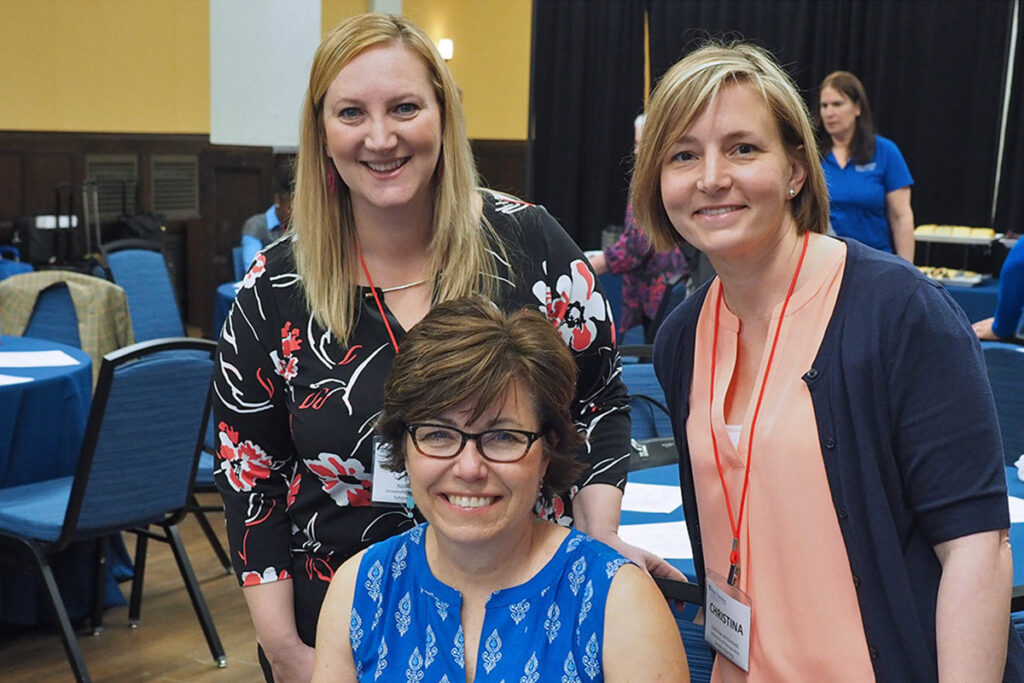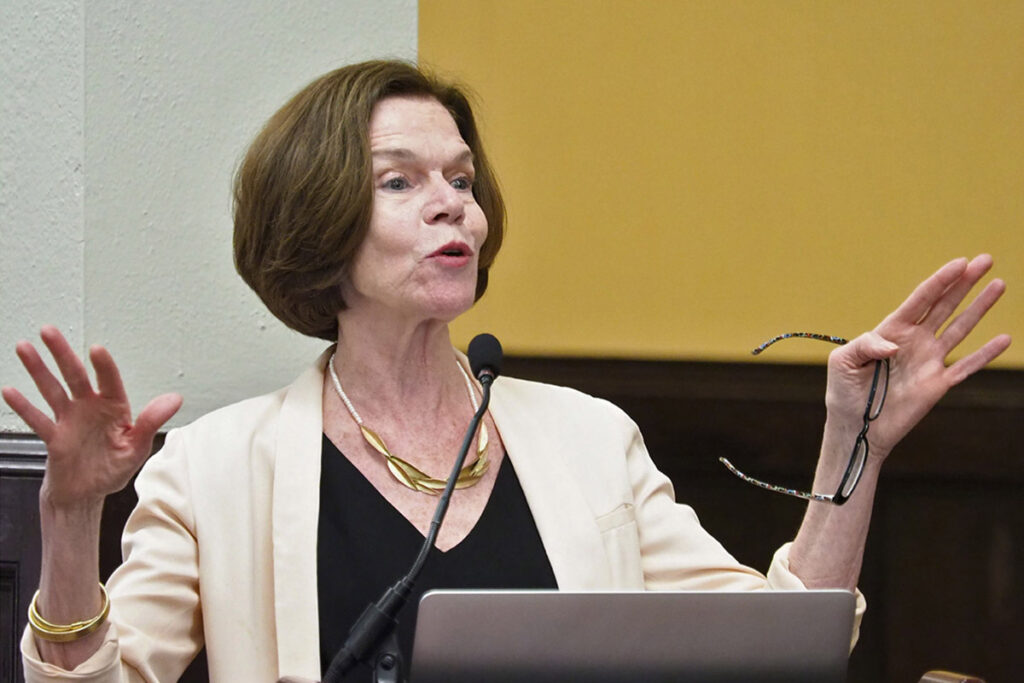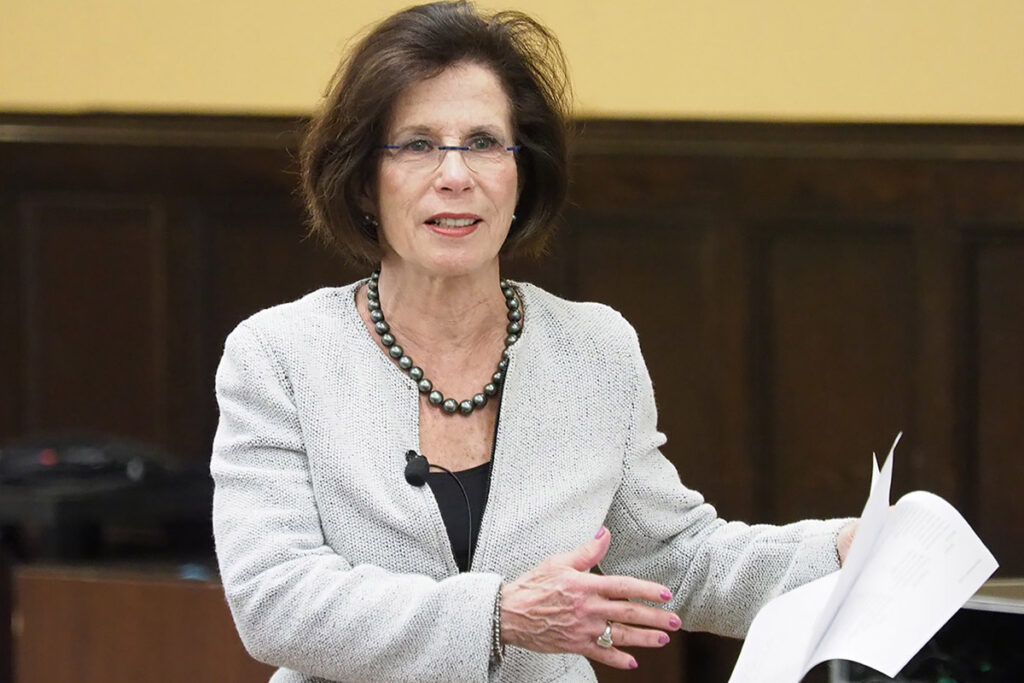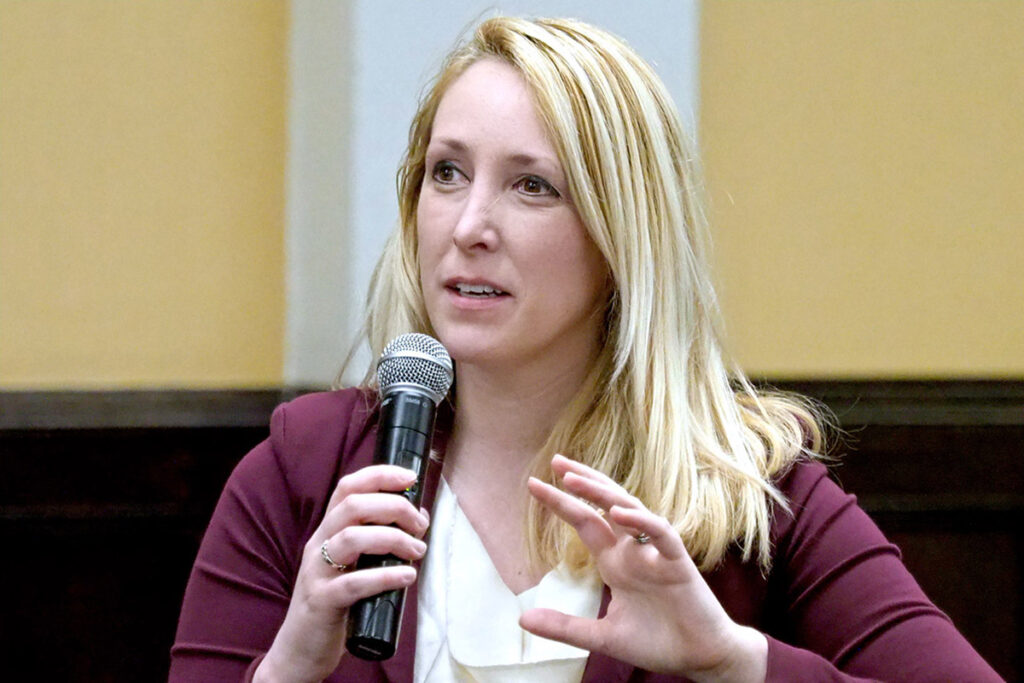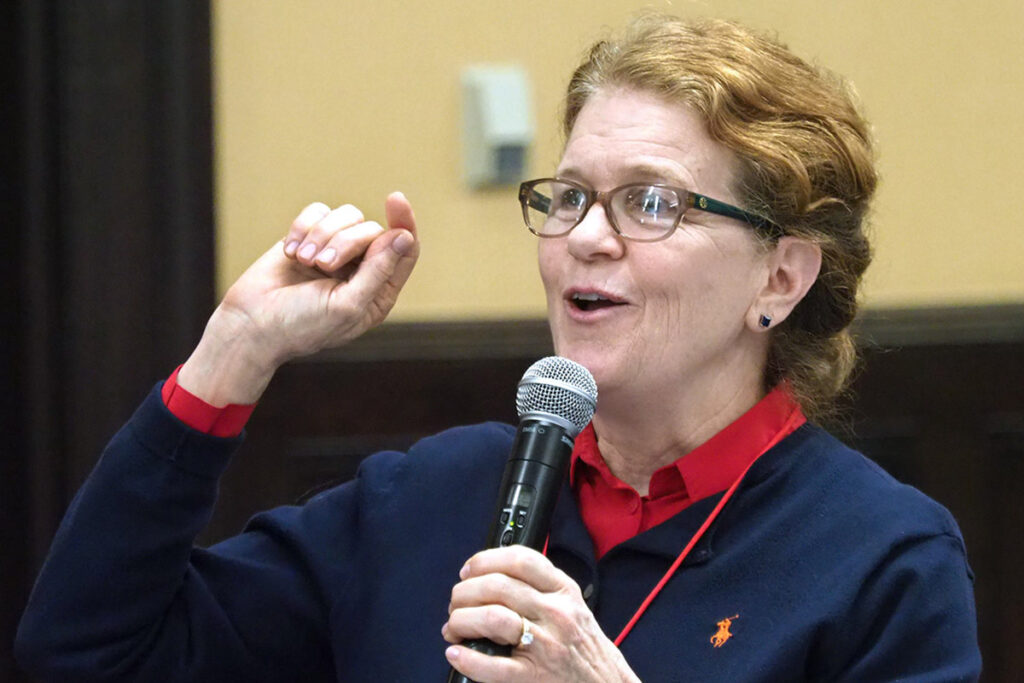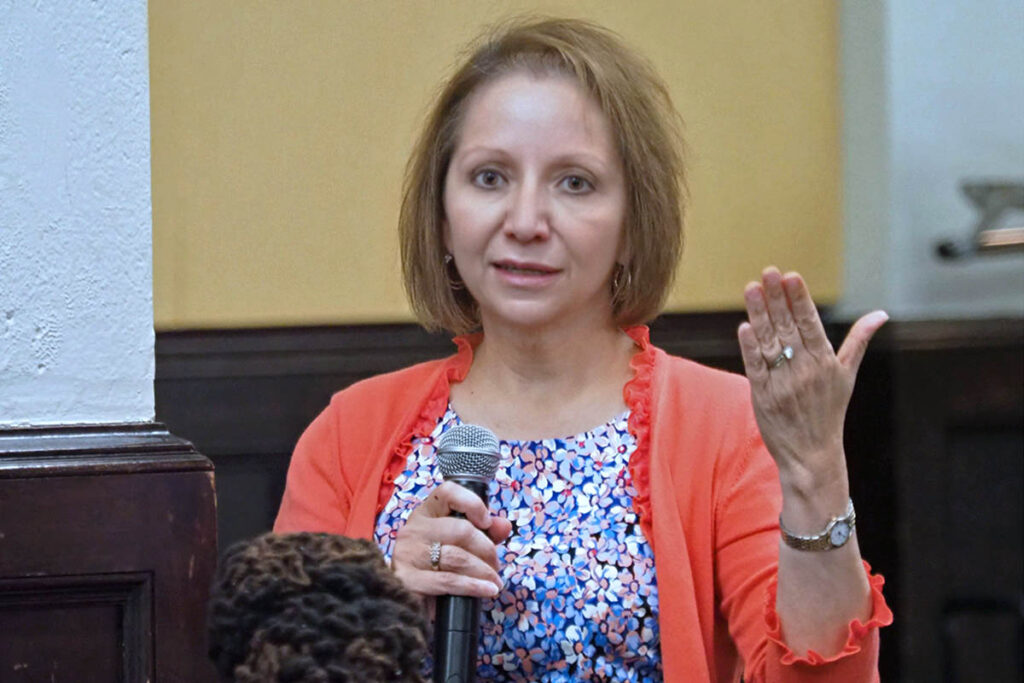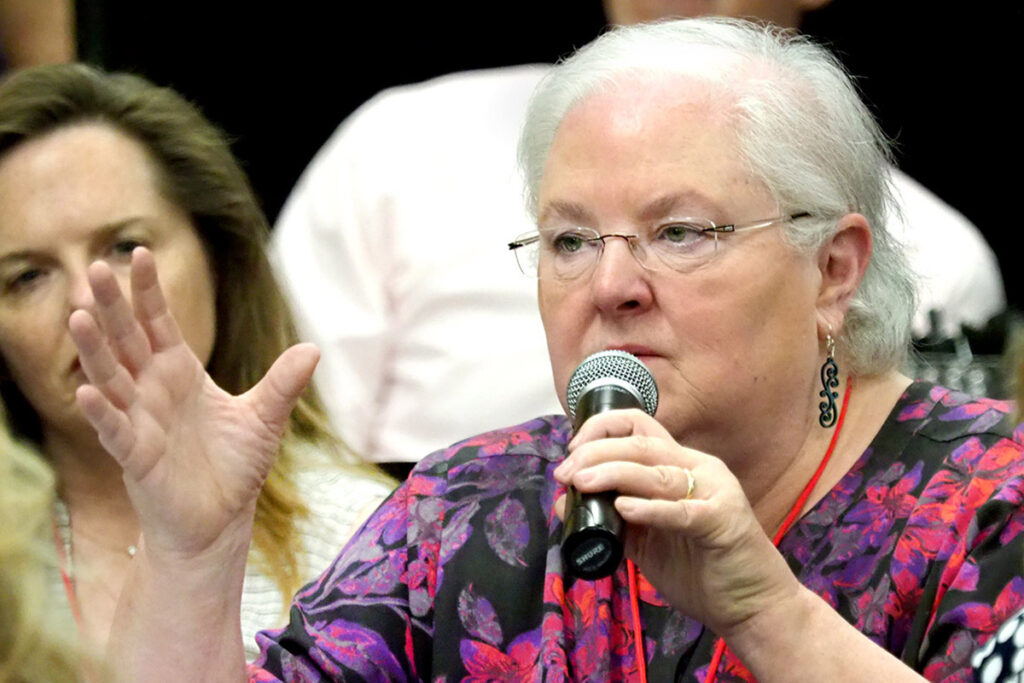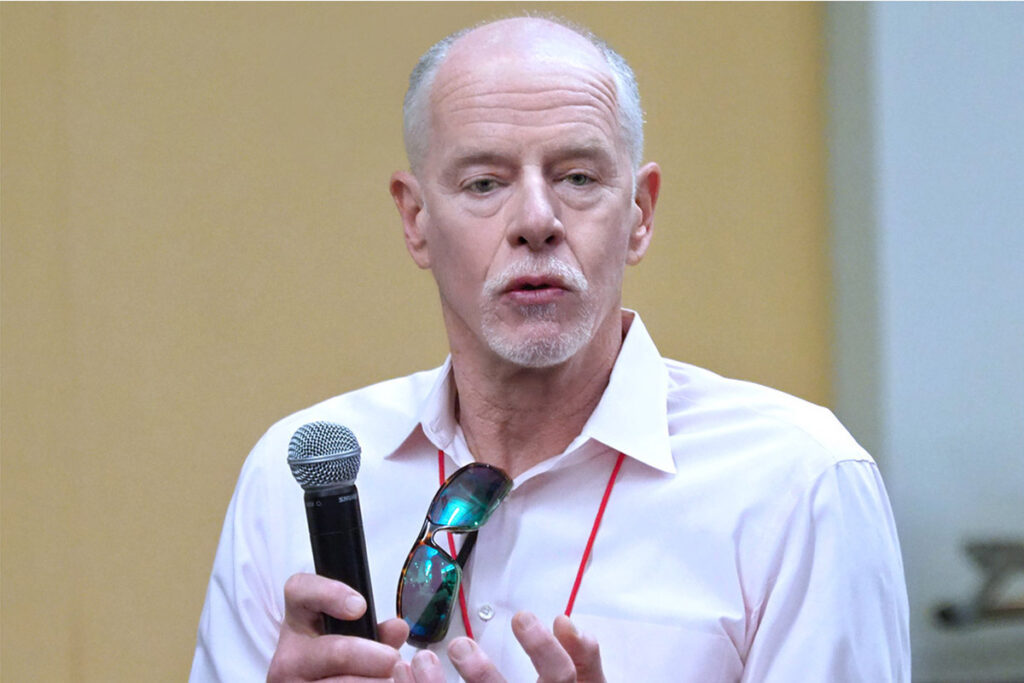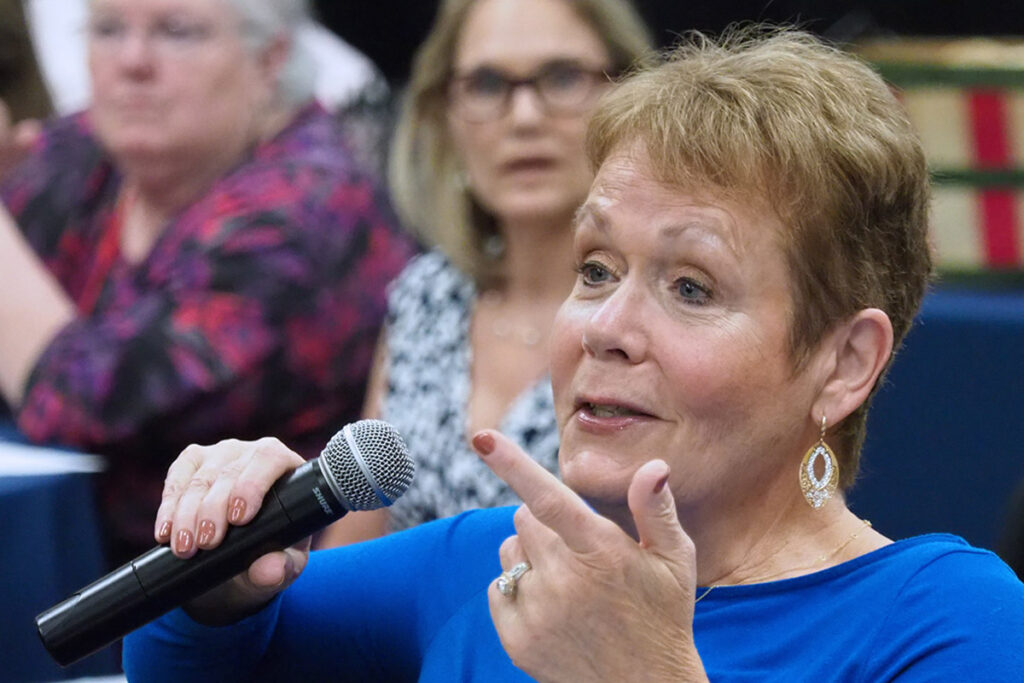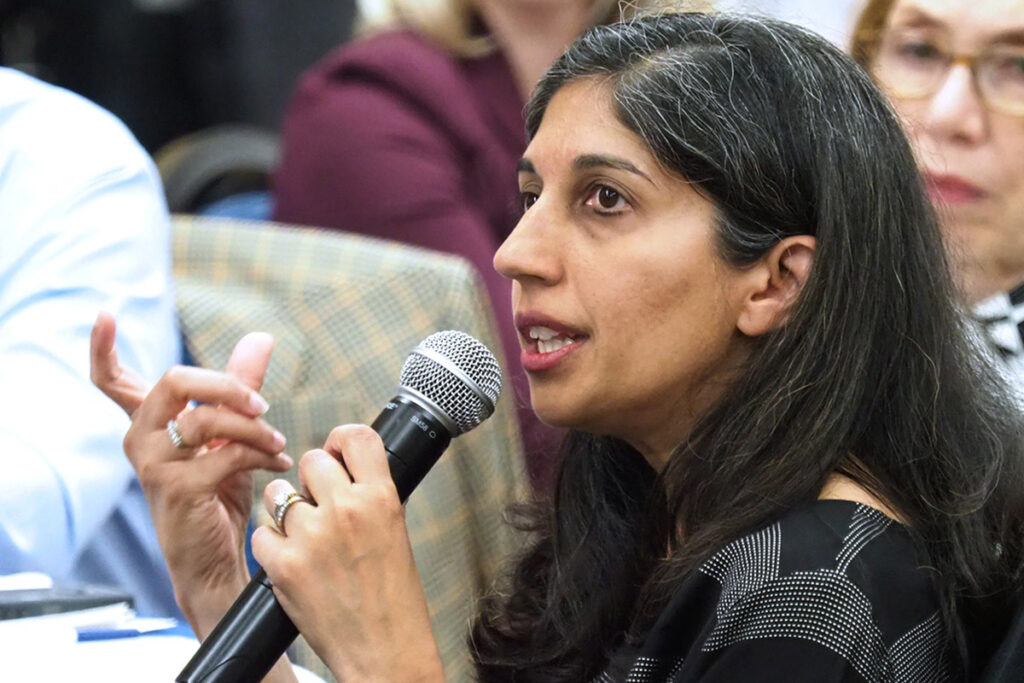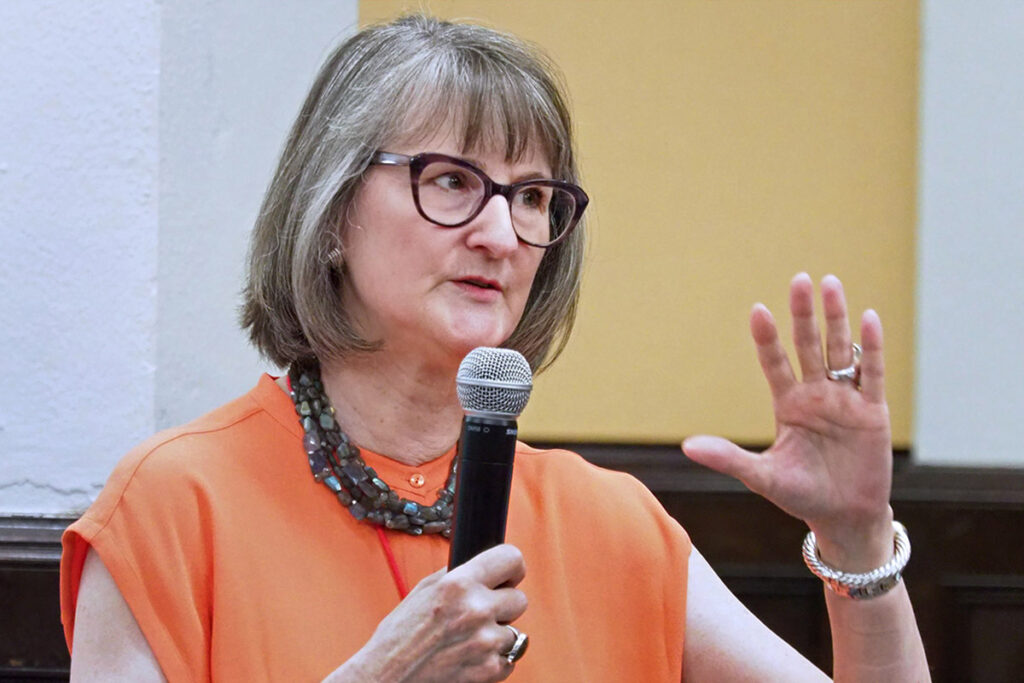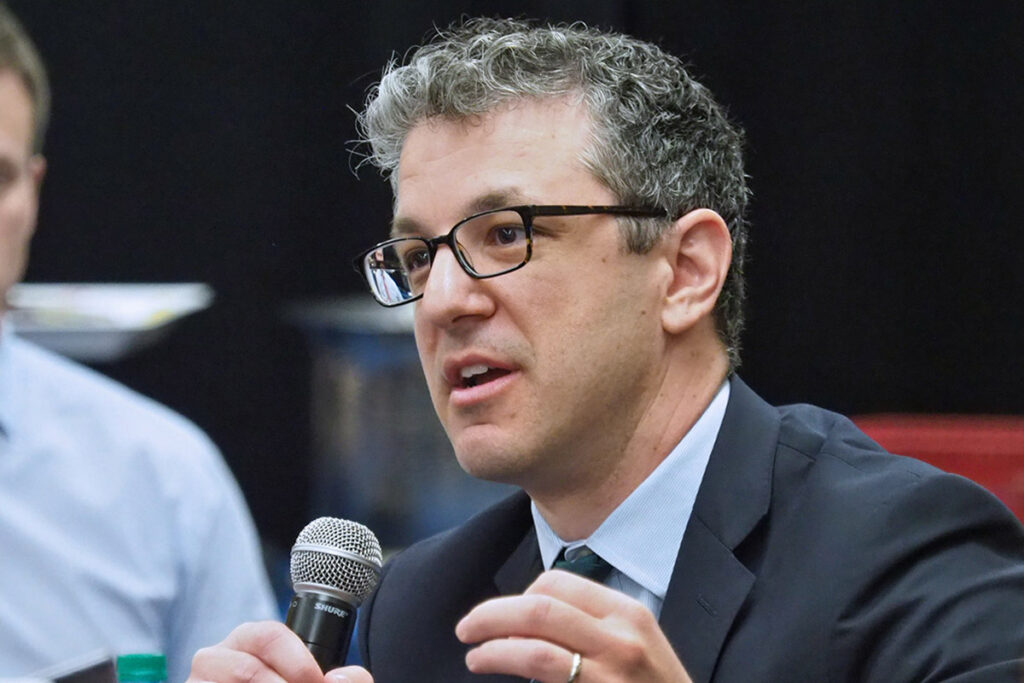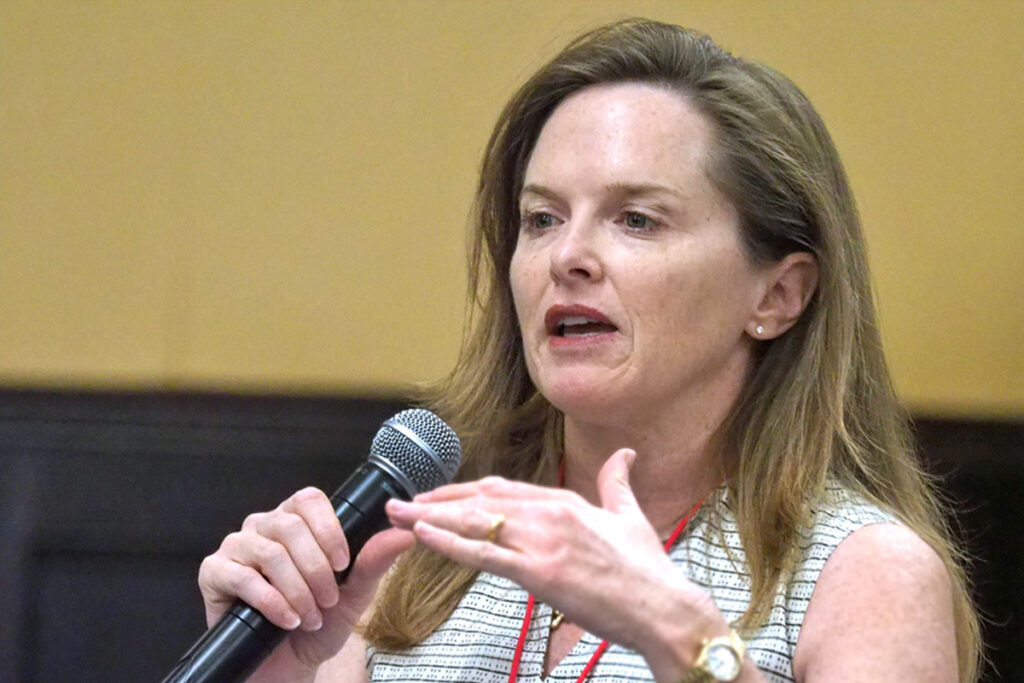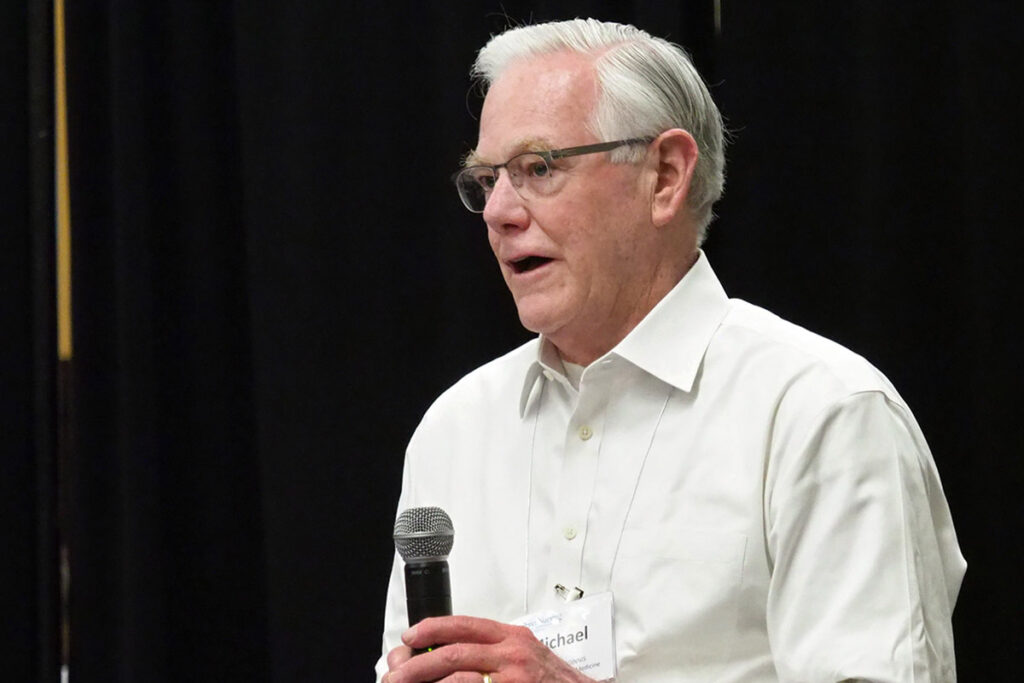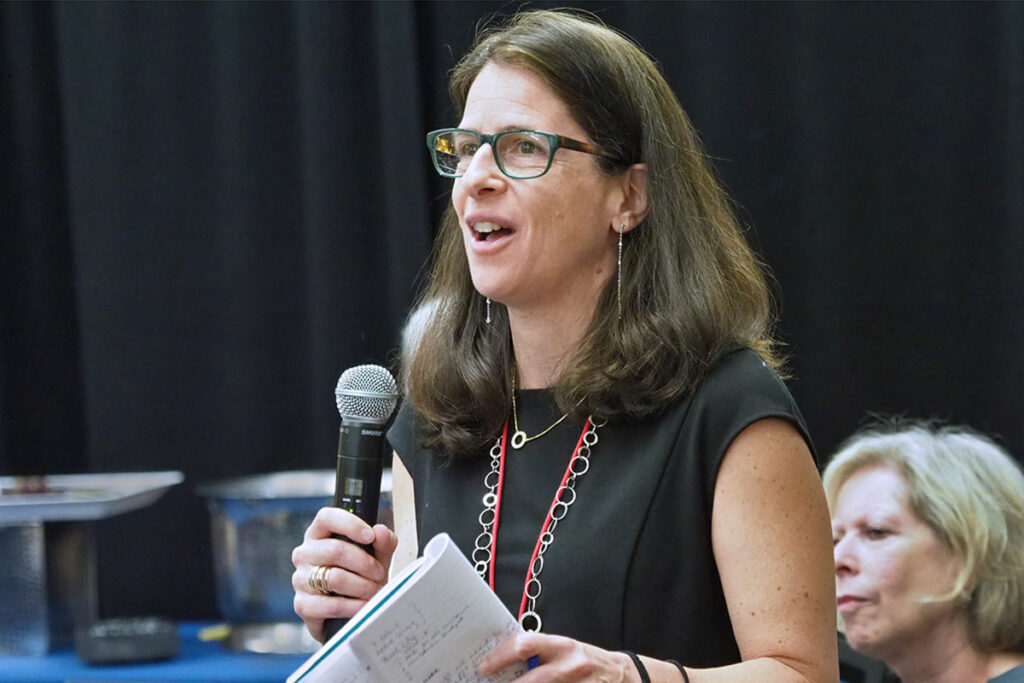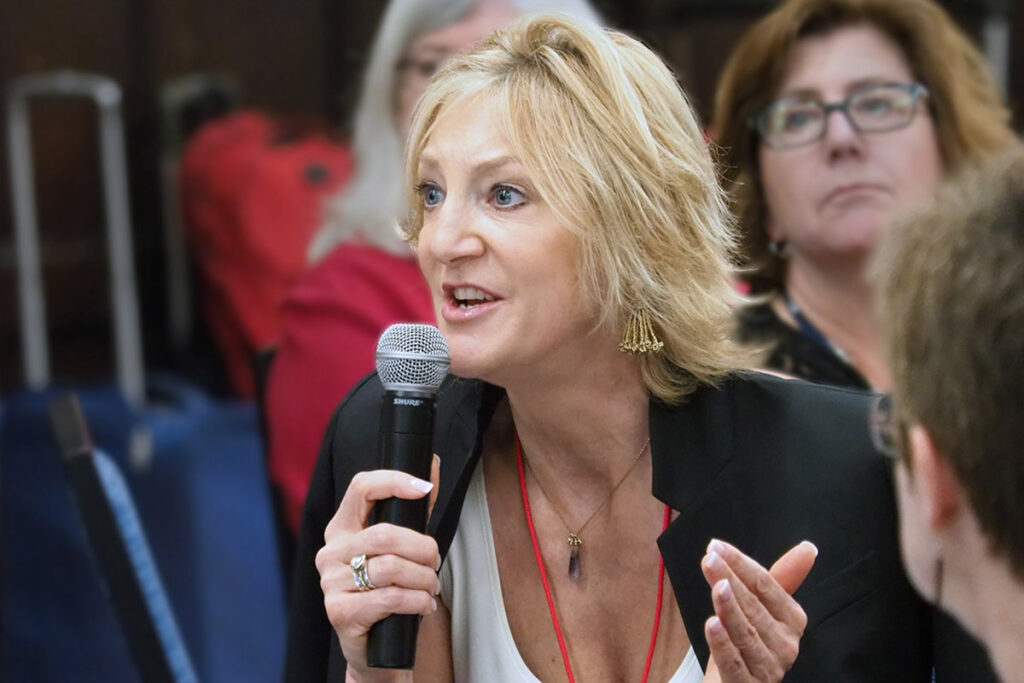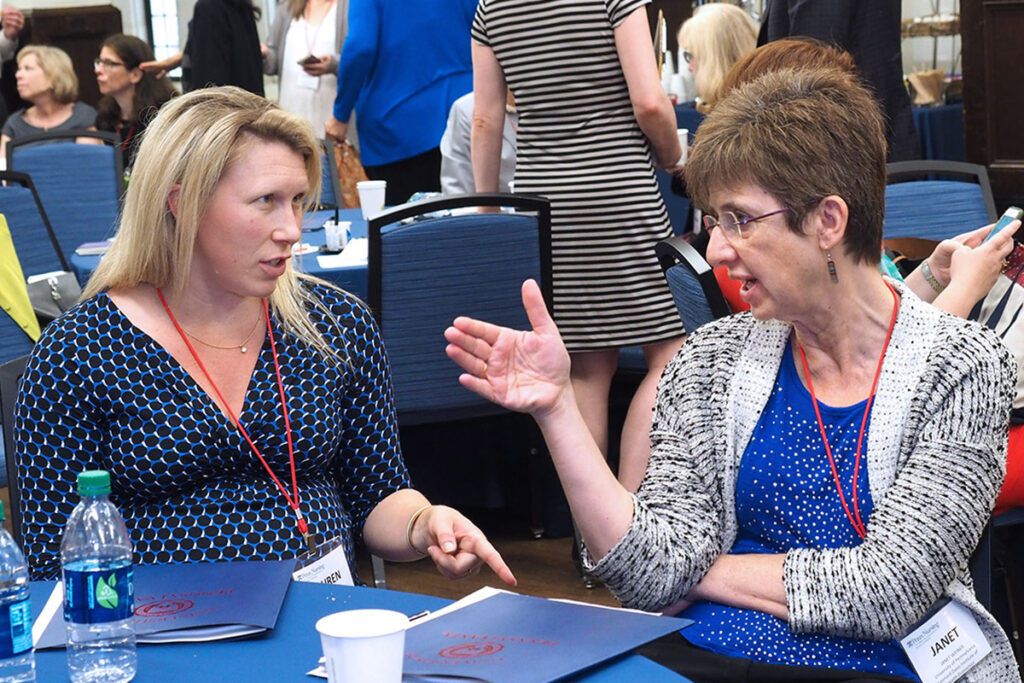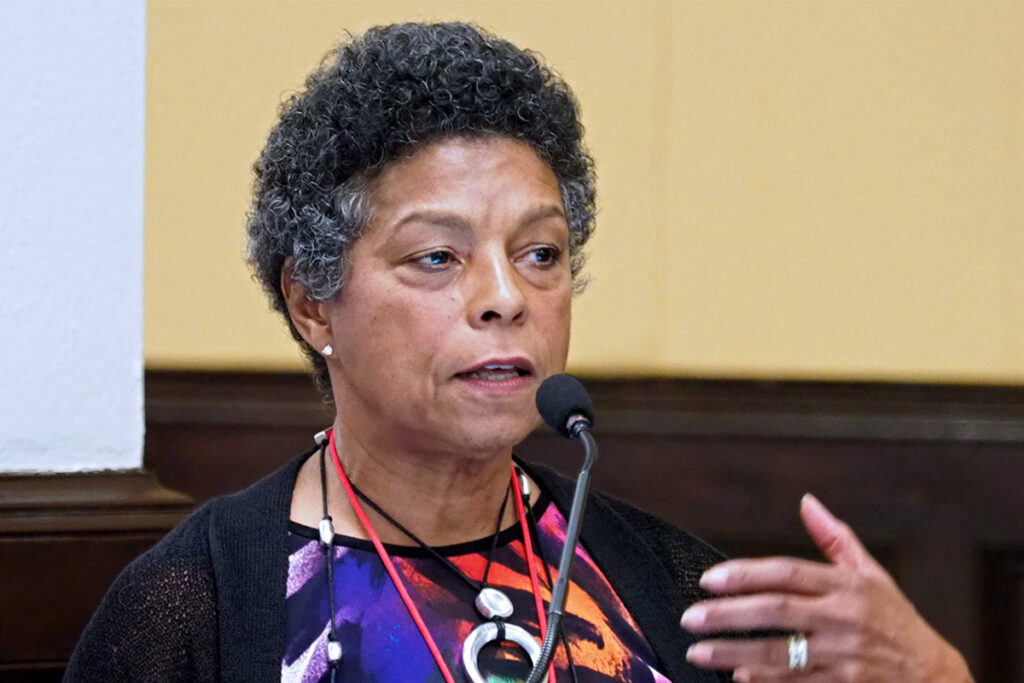Improving Care for Older Adults
News
Photo Page: Penn Nursing’s National ‘Think Tank’ on Vulnerable Elder Care
Three Month Initiative Culminates in Two Days of Campus Meetings to Refine Final Recommendations
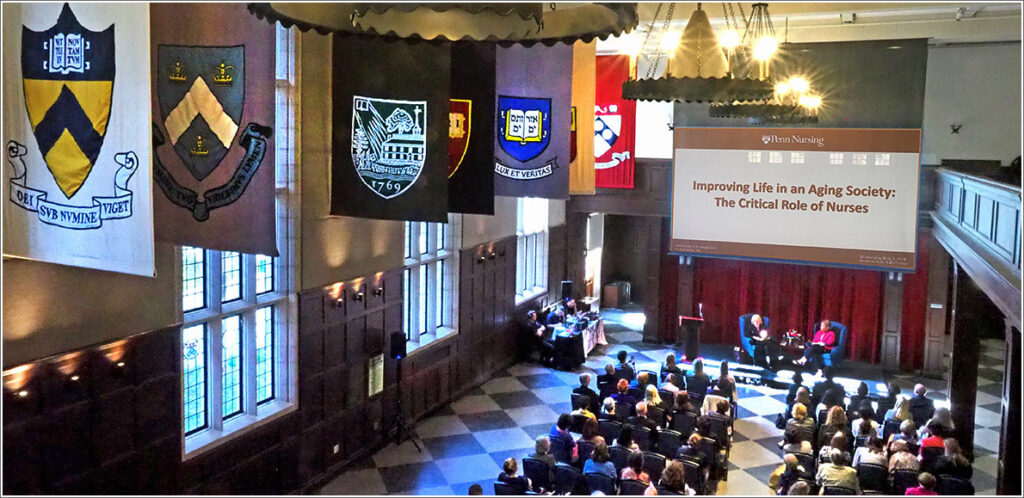
Meeting in the Hall of Flags (above) in the University of Pennsylvania’s historic Houston Hall, fifty national geriatric health care experts gathered for a two-day “Think Tank” on care for vulnerable older adults and their caregivers. Organized by Penn’s School of Nursing, the session culminated several months of teleconferencing efforts by workgroups exploring new models of care, patient and caregiver-directed partnerships, and the kind of technological and organizational innovations that might be applicable to this area of care delivery. The in-person sessions on campus were aimed at refining the final, actionable versions of specific national recommendations.
In a photo op at the start of the program (above, left) are the project’s Co-Directors, Nancy Hodgson, PhD, RN, FAAN, Chair of Gerontology at Penn’s School of Nursing and Mary Naylor, PhD, RN, FAAN, Professor of Gerontology and Director of the New Courtland Center for Transitions and Health with George Demiris, PhD, FACMI, Penn Integrates Knowledge Professor and a national authority in the design and evaluation of “smart home” and other digital monitoring and support systems for elder care. Above, right on stage are keynote speaker Regina Herzlinger, DBA, a Professor of Business Administration at the Harvard Business School being interviewed by Jackie Judd, a Health Policy Communications Consultant and former Vice President of the Kaiser Family Foundation and broadcast news journalist. Herzlinger is the author of books including Consumer-Driven Health Care: Implications for Providers, Payers, and Policymakers, and Market-Driven Health Care: Who Wins, Who Losses in the Transformation of America’s Largest Service Industry?
In the front row are (above, left) Ralph Muller, MA, CEO of the University of Pennsylvania Health System and Mary Naylor. Above, right, Herzlinger emphasized that nurses are well-positioned to lead a new model of care coordination for vulnerable older adults. She reached back into history with an inspirational nod to Lillian Wald, the turn-of-the-20th-century nurse credited with establishing community nursing in the U.S. “Articulate clearly a concept that cuts across race and class and occurs at home as an innovative and practical solution to the complex needs of vulnerable individuals and families,” Herzlinger quoted from a Wald history and noted, “We can learn a lot from her.”
Held in Penn’s Bodek Lounge (above, left), day two of the “Think Tank” event was opened by Nancy Hodgson, PhD, RN, FAAN (above, right), Chair of Gerontology at the Penn School of Nursing. “We are here today to reimagine a future,” Hodgson told the audience, “particularly one where nurses are leveraged to transform care within the next few years. We felt by gathering the right people at the right time to generate ideas, ask the right questions, capture your ideas and be ready to act on those ideas was a very worthwhile endeavor.”
Playing major roles in the room-wide discussions on the best way to hone the recommendations to enhance their chances of implementation and success were above, left, economist Gail Wilensky, PhD; Risa Lavizzo-Mourey, MD, MBA, Penn Integrates Knowledge Professor and former CEO of the Robert Wood Johnson Foundation, and former Chief of Geriatric Medicine at Penn Medicine; and Mary Naylor. Above, right, Daniel Polsky, PhD, Executive Director of Penn’s Leonard Davis Institute of Health Economics (LDI) talks with David Baiada, MBA, CEO of Bayada Home Health Care, which employs 28,000 health care professionals in 23 U.S. states and four other countries.
Enjoying a brief break (above, left) were Justine Sefcik, PhD, RN, Postdoctoral Research Fellow, School of Nursing’s NewCourtland Center for Transitions and Health; Susan Keim, MSN, MS, CRNP, Advanced Senior Lecturer and Director of Graduate Nursing & Healthcare Administration and Leadership Programs; and Christina Whitehouse, PhD, CRNP, CDE, Postdoctoral Research Fellow at the New Courtland Center. Above, right, Mary Naylor told the audience, “We need promote a national dialogue focused on what matters most to chronically ill older adults and their family caregivers. We see this not as just a care model opportunity but rather as a cross cutting recommendation that is fundamental to the success of this initiative.”
The open discussion of the recommendations was led by Gail Wilensky, PhD and Senior Fellow at Project Hope, the international health foundation (above, left). She moderated comments and suggestions from audience members around the room including (above, right) Jennifer MacDonald, MD, Clinical Lead in the Office of Connected Care in the Department of Veterans Affairs.
Above, left, making a point was Jane Carmody, DNP, MBA, RN, Program Officer at the John A. Hartford Foundation, a national private foundation focused on improving care of older adults. Above, right, Dean of the Penn School of Nursing Antonia Villarruel, PhD, RN, FAAN comments on how best to think about reaching the various audiences for the recommendations.
Above, left, Therese Richmond, PhD, CRNP, FAAN, the Associate Dean for Research & Innovation at Penn’s Nursing School. Above, right, Anthony Buividas, MBA, consultant for LIFE (Living Independently for Elders) and post acute care programs, former Senior Vice President at Capital BlueCross and former head of Health Care Delivery at Aetna.
Above, left, Gretchen Alkema, PhD, LCSW, Vice President for Policy, the SCAN Foundation, an organization focused on the health needs of the elderly population. Above, right, Michael McGinnis, MD, MPP, Senior Scholar and Director of the Medicine Leadership Consortium for a Value & Science-driven Health System at the National Academy of Medicine (NAM).
Chatting on a brief break (above, left) are Lauren Starr, PhD student in End of Life & Palliative Care Nursing at Penn, and Janet Weiner, PhD, MPH, Co-Director of Health Policy at LDI. Above, right, Risa Lavizzo-Mourey gave the closing remarks. “This has been an incredible culmination of a lot of hard work by people in this room to really begin to launch something that is desperately needed in this country and that we have a real opportunity to achieve,” she said. “There has really been a lot of great ideas coming from really smart people on how we’re going to make older adults and their caregivers have a different experience than what we have right now. I do believe it’s going to take leadership from specific groups in order to have that happen. We’ve got to decide how to bring that leadership together in order to really be effective. It won’t just happen. We’re going to have to make it happen.”
